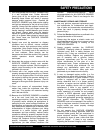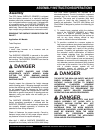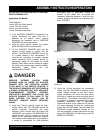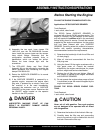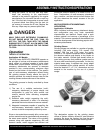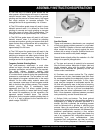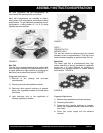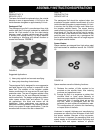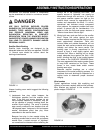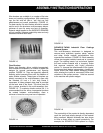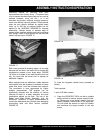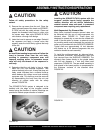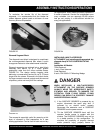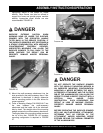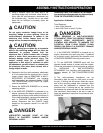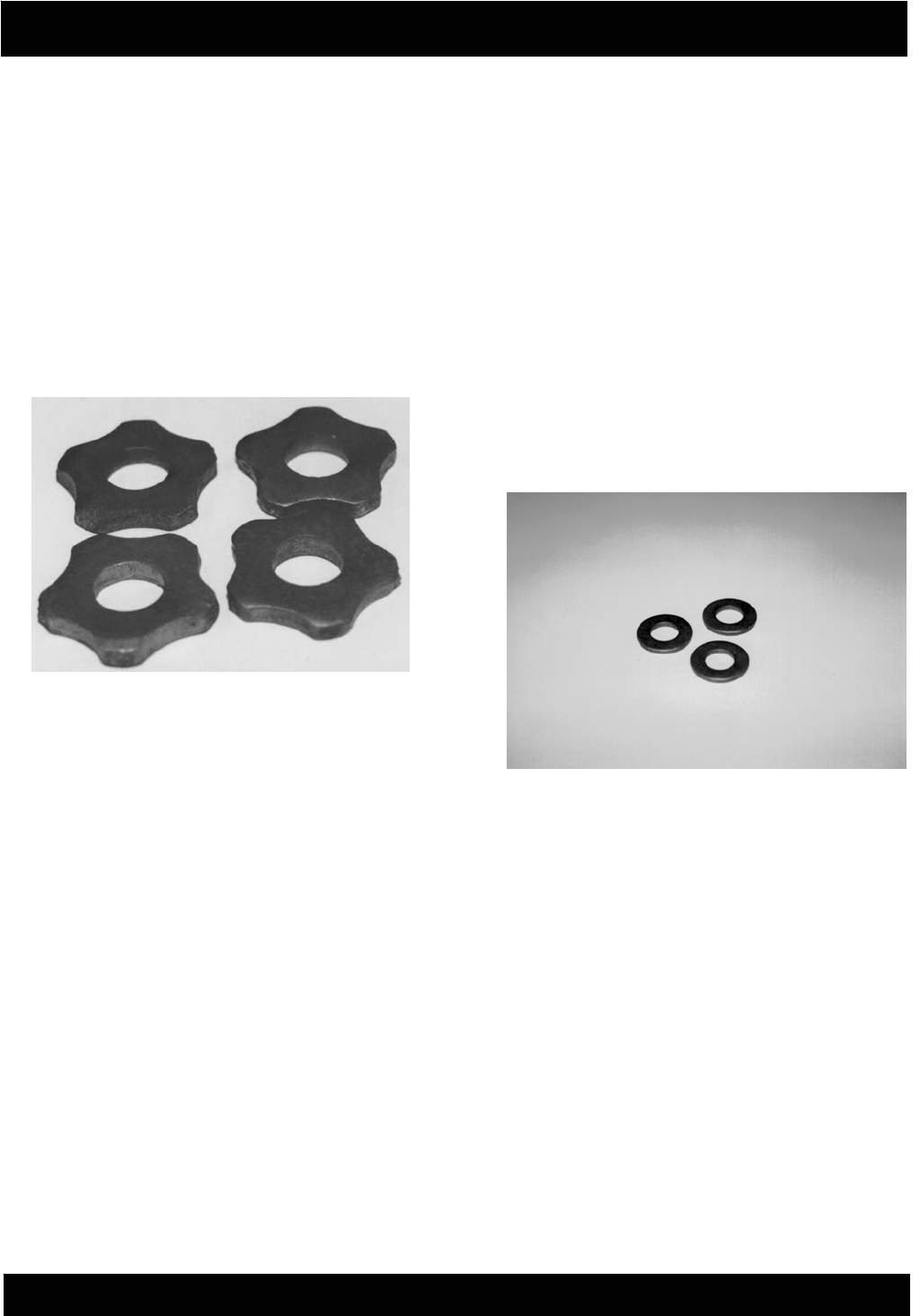
DFG-SERIES SURFACE GRINDERS OPERATION AND PARTS MANUAL REV #3 (07/13/06) PAGE 21
ASSEMBLY INSTRUCTIONS/OPERATIONS
COST 1
PRODUCTIVITY 5
SERVICE LIFE 2
The beam flail should be replaced when the outside
diameter is worn to approximately 1-5/16 inch or the
inside diameter elongates to approximately 3/4 inch.
Pentagonal Flail
The pentagonal type flail is manufactured from high
carbon steel that is through hardened for additional
service life. Each section of the five sided design
features a small, tungsten carbide insert that is held
in position with copper brazing. It is highly effective
for scabbling or scarifying and delivers medium to
coarse finish texture. FIGURE 9.
FIGURE 9
Suggested Applications:
1) Heavy duty asphalt and concrete scarifying.
2) Heavy duty descaling of steel decks.
The pentagonal flail is designed for more aggressive
and rapid removal of a surface in comparison to the
beam flail. The addition of the tungsten carbide
inserts contributes to its long service life and higher
production rates. The use of tungsten carbide is also
the main reason for the cost differential between it
and the other flails. The design configuration yields a
rather coarse surface finish and texture. For many
job applications, this finish and texture will be
satisfactory. Some applications may require an
additional smoothing process. If the resulting surface
finish is too coarse to meet specifications, it can be
smoothed with the use of the star or beam flail.
COST 10
PRODUCTIVITY 8
SERVICE LIFE 10
The pentagonal flail should be replaced when two
successive tungsten carbide inserts break off or the
inside diameter elongates to approximately 3/4 inch.
In service, the flail body will wear much faster than
the tungsten carbide inserts. The copper brazing
used to weld the inserts into the body can fail and an
insert break off. The flail can still be used in service.
It will just wear a little faster and more uneven in that
particular area. As a general rule, a pentagonal flail
can be utilized until body wear will no longer support
the tungsten carbide inserts.
Spacer Washer
Spacer washers are stamped from high carbon steel
and heat-treated for additional service life. FIGURE
10.
FIGURE 10
Spacer washers serve the following functions:
1) Reduces the number of flails required to be
mounted on the scarifier block, thus reducing
purchase and operational costs.
2) Arrange the flails in a sequence or pattern that
minimize "blind" or "open" spots. Normally, at
least one spacer washer is inserted between two
consecutive flails. A scarifier block set up with
only star, beam or pentagonal flails will not
penetrate the work surface at satisfactory rates.
This configuration will minimize the hammering
or impact action of the flails.
Variances in material thickness and manufacturing
processes can affect the final thickness of both flails
and spacer washers. Because of this occurrence,
trial and error is important for assembling flails and
spacer washer on the scarifier block. By mixing and
matching flails and spacer washers of specific



